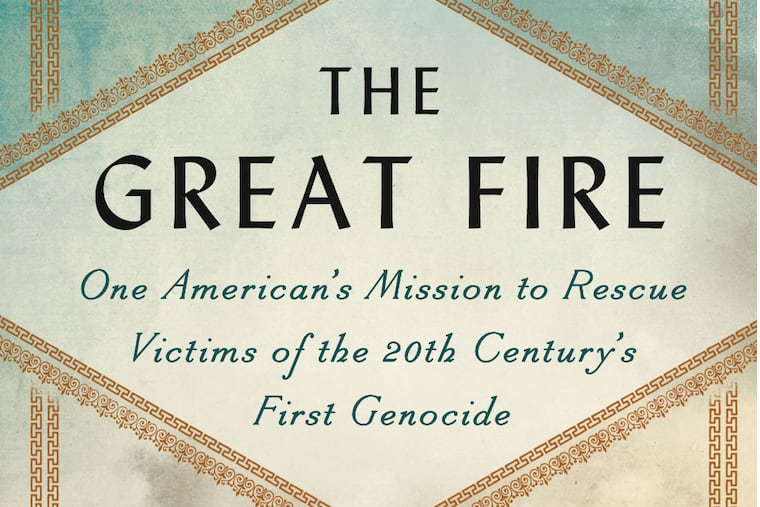'The Great Fire' by Lou Ureneck: Timely and vivid account of a genocidal moment
American missionaries went to the Ottoman Empire in the early 19th century seeking to convert Muslims and Asians to Christianity and hasten the coming of Christ. In the years that followed, they shed their Judgment Day rhetoric and proselytizing dreams and became dedicated educators.

The Great Fire
By Lou Ureneck
Ecco. 488 pp. $35.99
nolead ends nolead begins
Reviewed by
Cornelia A. Tsakiridou
nolead ends
American missionaries went to the Ottoman Empire in the early 19th century seeking to convert Muslims and Asians to Christianity and hasten the coming of Christ. In the years that followed, they shed their Judgment Day rhetoric and proselytizing dreams and became dedicated educators.
Asa K. Jennings, hero of Lou Ureneck's new book, The Great Fire, represents the best of this tradition. On Sept. 20, 1922, the modest Methodist minister joined with Lt. Cmdr. Halsey Powell to orchestrate the mass evacuation from Smyrna of hundreds of thousands of Greek and Armenian refugees on chartered ships. Their initiative startled American officials and reporters in Istanbul and Washington, who had turned a blind eye to the destruction of the city.
Ureneck's narrative is intense and vivid. He describes the orderly entrance of the Turkish nationalist forces under Kemal Ataturk - and brings to life the carnage and savagery that followed, as Ataturk's army was given full license to turn the empire's most cosmopolitan and affluent city (known as "infidel Izmir") into a theater of hell. He puts the Great Powers to shame.
As the city burned, as women and girls were ravished, as mutilated corpses filled the sea, British, French, Italian, and American warships stood by, observing orders of strict neutrality. On the quay, Turkish troops systematically detained all adult Christian males under 45 for deportation into the interior, practically a death sentence only a few (among them my grandfather) survived.
The Great Fire assigns blame where blame is due. Ataturk's party, the Committee for the Union of Progress (CUP), had been responsible for the 1915 genocide of 1 million Armenians. Pontic and Anatolian Greeks and Assyrians followed. By 1923, 3.5 million Ottoman Christians had perished. Armenian and Greek atrocities paled by comparison.
The Great Fire is a timely book. Since the 2003 U.S. invasion of Iraq, more than 1.2 million Iraqi Christians have fled or died in sectarian conflict. Christian minorities in Muslim nations are targets of Islamist extremists. In Egypt, the plight of Copts, one of Christianity's most ancient communities, continues despite the assurances of President Abel Fattah al-Sisi. Ritual ISIS executions of Christians in Syria, Iraq, and Libya meet with little more than verbal condemnation. As in Smyrna, the international community looks on.